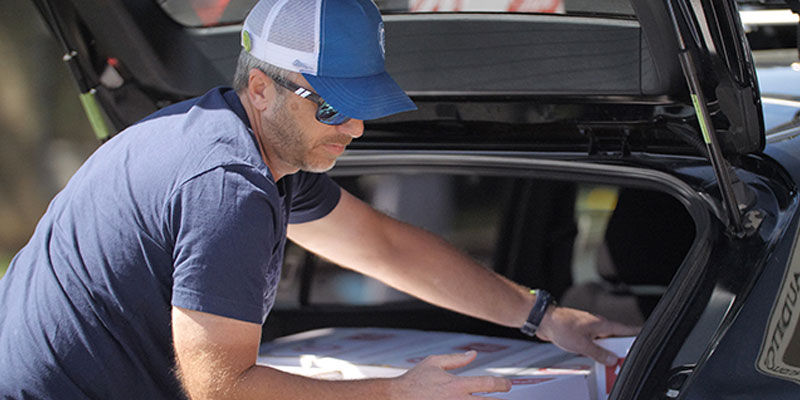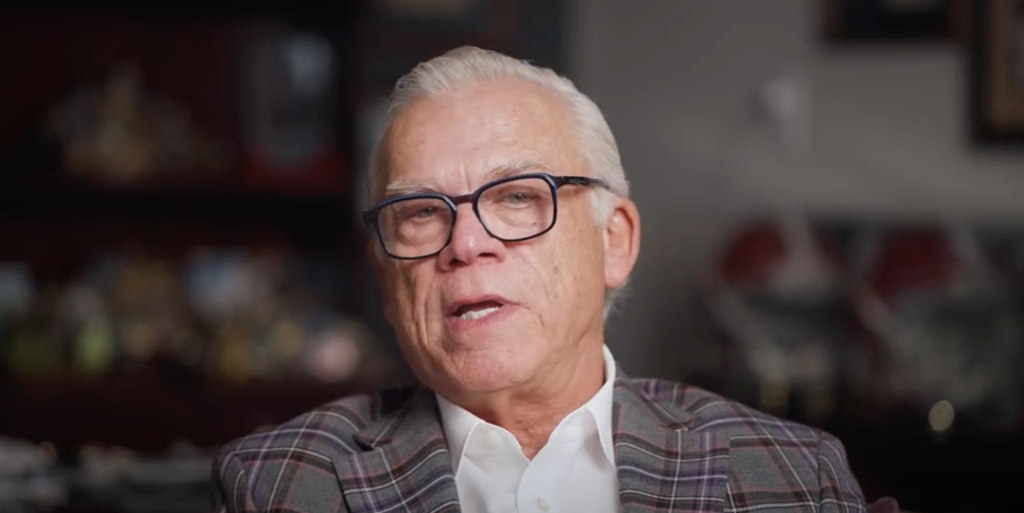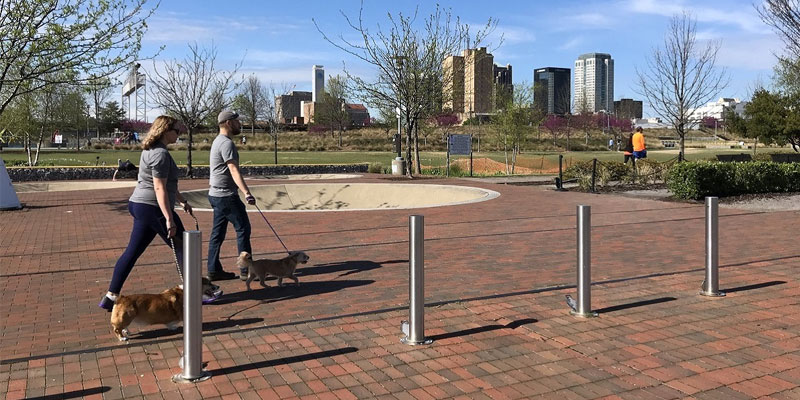As president and CEO of United Way of Central Alabama (UWCA), Drew Langloh is often at the center of conversations about meeting critical community needs.
But as the coronavirus expands its reach, it’s clear this crisis will demand significant resources to tackle multiple issues – some familiar from past disasters, and some the community has rarely or never experienced.
“When people call us, they are usually having a bad day,” said Langloh, referring to UWCA’s 211 Connects referral center. But with COVID-19, the real and immediate needs of people – and fear about the future – have triggered a dramatic influx of inquiries from across central Alabama, the region of the state where the largest number of COVID-19 infections have been recorded.
“There are two faces to any disaster – the first is the first responders’ response – addressing lifesaving and stabilization efforts. The second is the long-term recovery: how to help people get back on their feet,” Langloh said.
United Way of Central Alabama adjusts Meals on Wheels during coronavirus pandemic from Alabama NewsCenter on Vimeo.
Langloh said the response during these first few weeks has focused on maintaining critical services — for example, making sure meals continue to be delivered to homebound seniors, while instituting precautions to protect volunteers and the vulnerable, older population receiving food.
Another immediate need was ramping up the 24-hour, 211 call center so it could handle the crush of requests for help. In the past two weeks, the center has gone from a normal three to five operators manning phones and computers to up to 30 operators, working remotely from home.
“Those pieces have fallen into place,” Langloh said.
But just as the impact of COVID-19 is evolving, so is the response. Volunteers are still delivering hot meals. But over the longer run, putting the volunteer team in daily contact with seniors – even if maintaining a safe distance – can increase the health risk. So, UWCA volunteers are preparing to make bigger deliveries of food, but less frequently.
On Thursday, volunteers with vehicles lined up at UWCA headquarters in Birmingham to receive the first of nearly 7,000 boxes of “shelf-stable” items, including cans of stew and tuna, beans and rice, packaged snacks and single-serving cereal containers. The packages, to be delivered over the next two weeks, will provide life-sustaining food to the most vulnerable populations: older and fragile individuals who can’t leave their homes and may not be able to receive visitors for an extended period while the virus moves through.
Becky Wright, director of Meals on Wheels for UWCA, said volunteers typically deliver 1,100 hot meals daily. She said the shelf-stable packages will provide “extra support … extra assurance” as the organization temporarily shifts away from delivering daily meals. UWCA has lined up volunteers to make daily phone calls to all meal recipients during the crisis to ensure things are OK.
Scott McGlaun of Hoover was one of the volunteers who packed his pickup with food packages. An executive at Blue Cross and Blue Shield of Alabama, like many people he is working remotely through the crisis and has flexibility in his schedule to help with this special food delivery.
“Our community is only as strong as our most vulnerable population,” McGlaun said. “Those of us who can, we should be doing what we can to help.”
Langloh said the No. 1 concern of those calling United Way is food insecurity – “fear of running out and not knowing where to go to get food.” He said while local school systems are doing a tremendous job of getting meals to vulnerable children, there’s a serious and growing need for meals among younger adults, ages 18 to 55, who live paycheck to paycheck and are getting laid off as businesses close. At the same time, food pantries and soup kitchens that rely in part on large supermarket chains and brand food companies to help fill their shelves are seeing their supply chain choked as companies focus on keeping retail stores stocked.
Langloh said as unemployment deepens in the next few weeks, families of laid-off workers will have pressing needs beyond food, such as paying for housing and basic services. “This is a real crisis that is just starting to hit us.”
And there’s another growing need, Langloh said: sustaining many smaller nonprofits that provide a host of important services in the community but are seeing their own revenues squeezed.
“Most nonprofits – a big part of their budgets come from fees for services,” Langloh said. But many of those agencies are having trouble providing fee-paid services because the virus has cut them off from direct contact with clients. Canceled fundraisers and donors turning their attention to other organizations focused on critical coronavirus-related relief have only compounded the problem for nonprofits.
“People don’t think about nonprofits as small businesses, but they are just as hamstrung right now,” Langloh said. “The needs these organizations address is not going away. We need to keep these nonprofits in business now, so they are here to serve us when all this is over.”
To generate financial resources for the many challenges around COVID-19, United Way of Central Alabama and United Way organizations across the state have launched a network of community crisis funds to provide grants for immediate human needs and local nonprofits. Donations can be made to support a United Way operating in a particular community, or to help multiple United Way organizations across a broader stretch of the state.
Langloh said UWCA is working with other nonprofits and charitable organizations, such as the Alabama Power Foundation, the Birmingham Strong small business loan initiative, corporations and others to coordinate and address the many critical needs.
Learn more about United Way of Central Alabama’s emergency relief efforts and its other, ongoing initiatives at uwca.org.
(Courtesy of Alabama NewsCenter)













